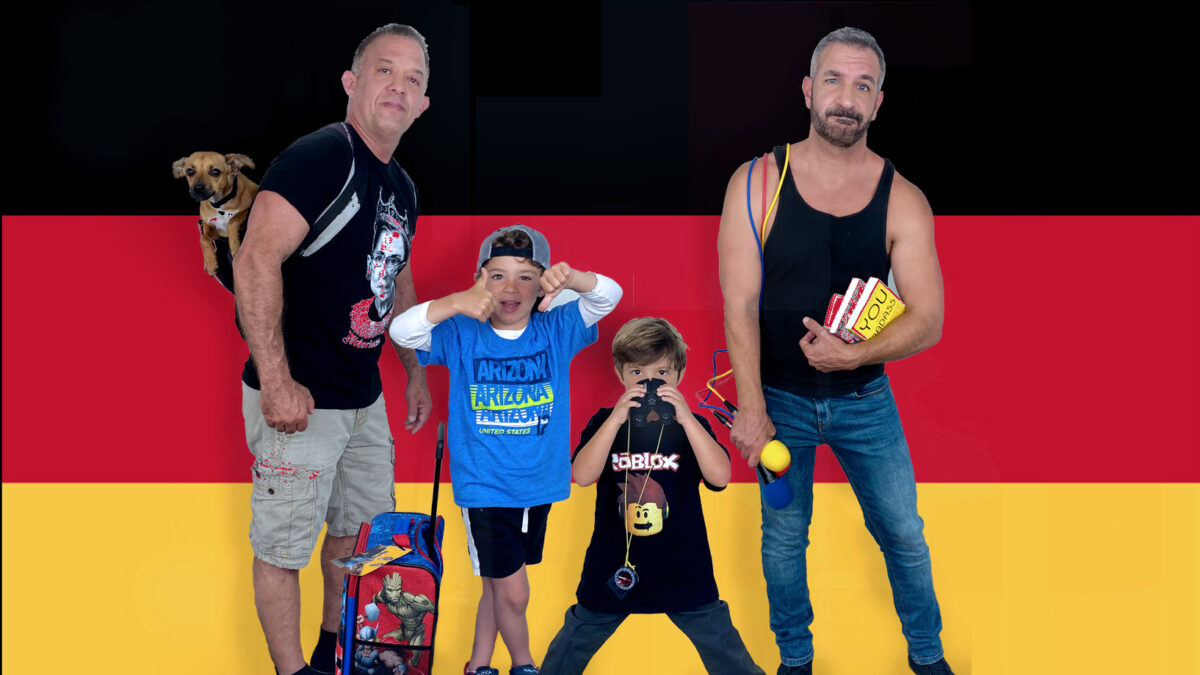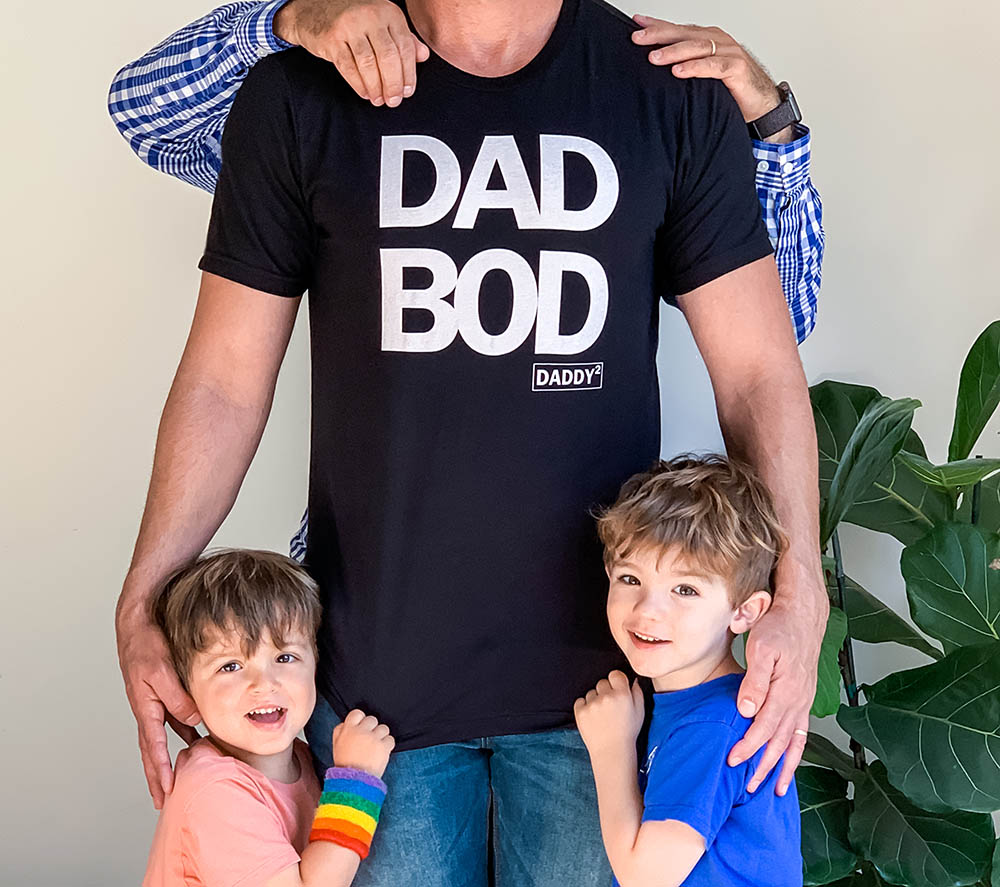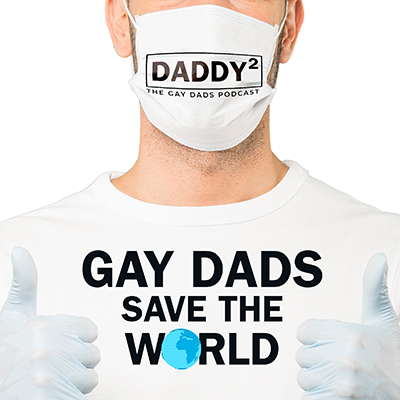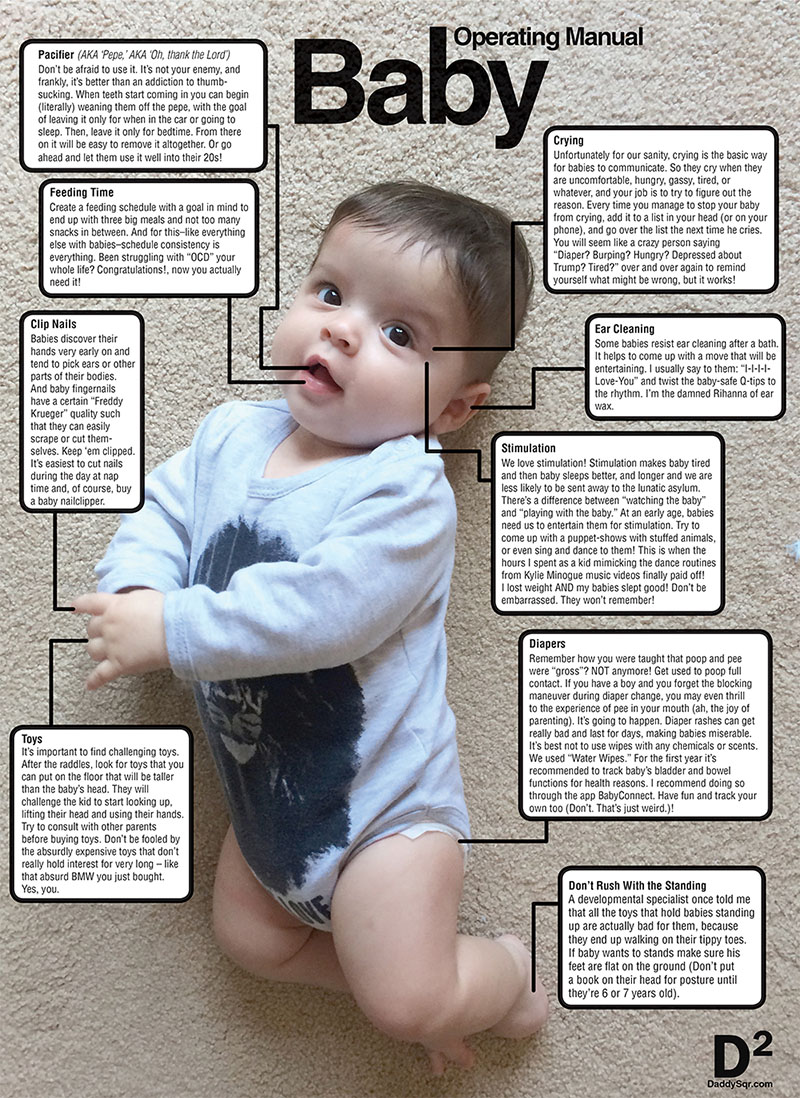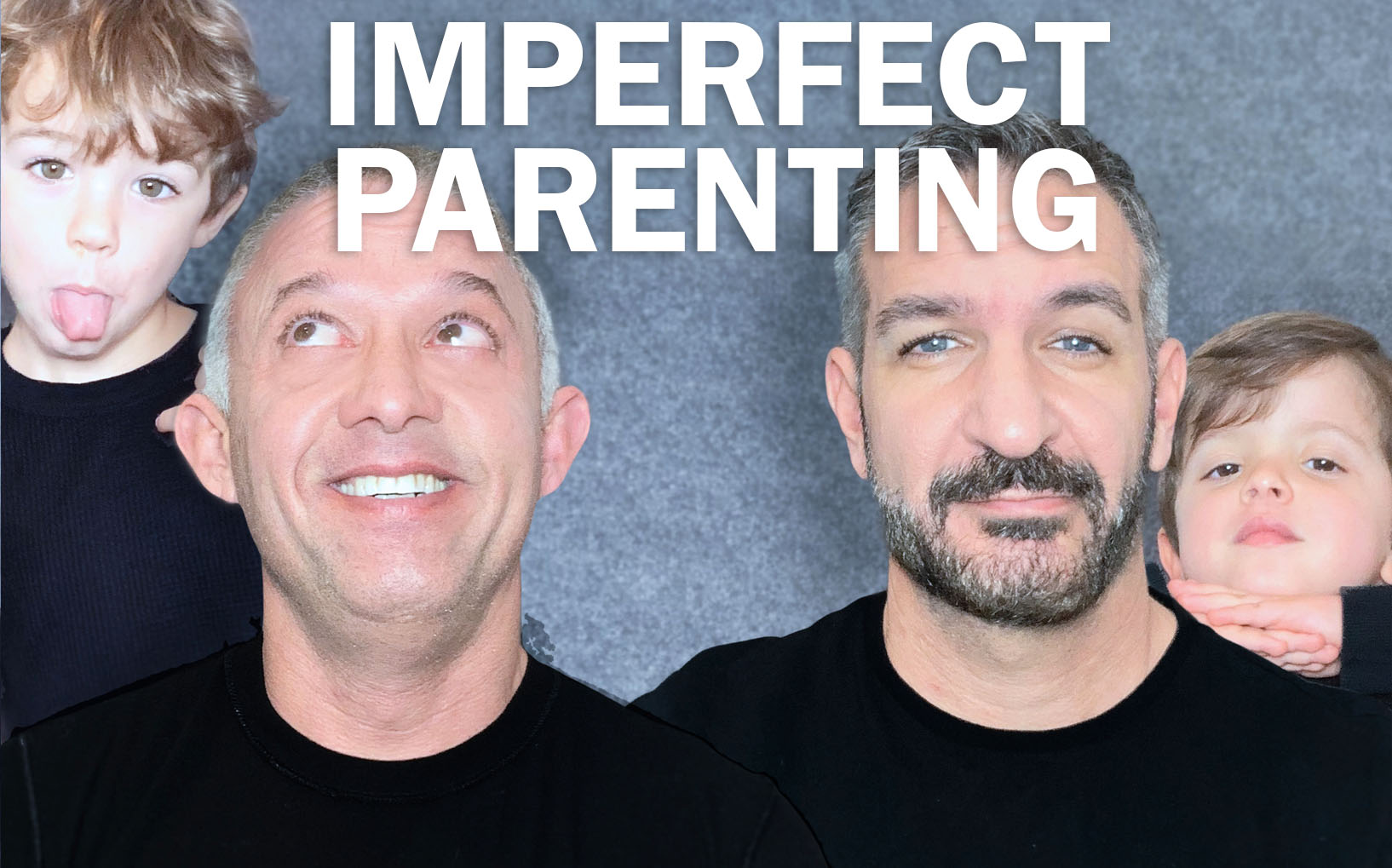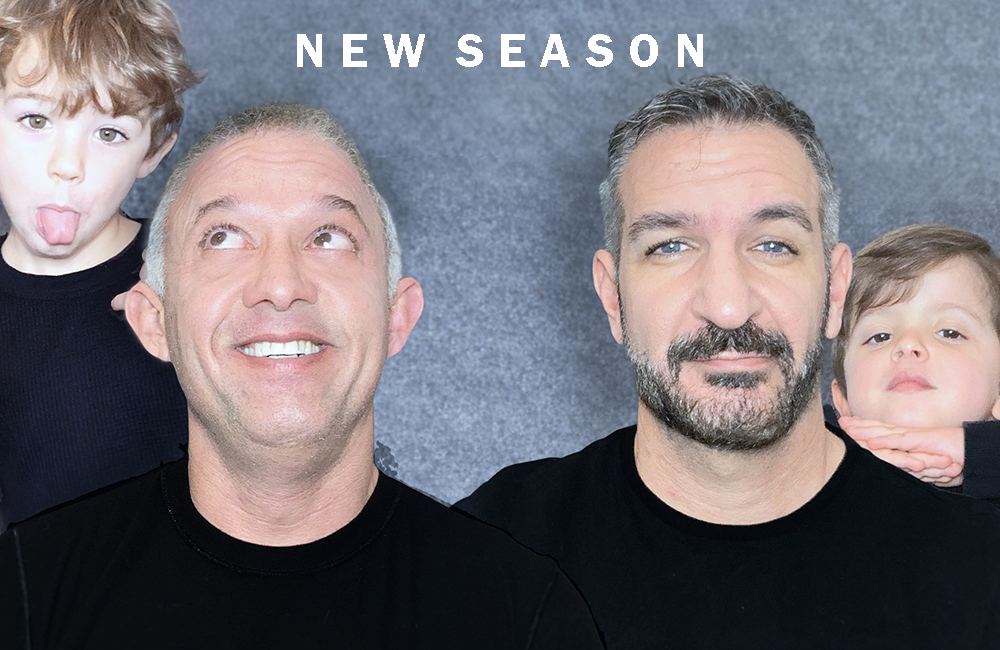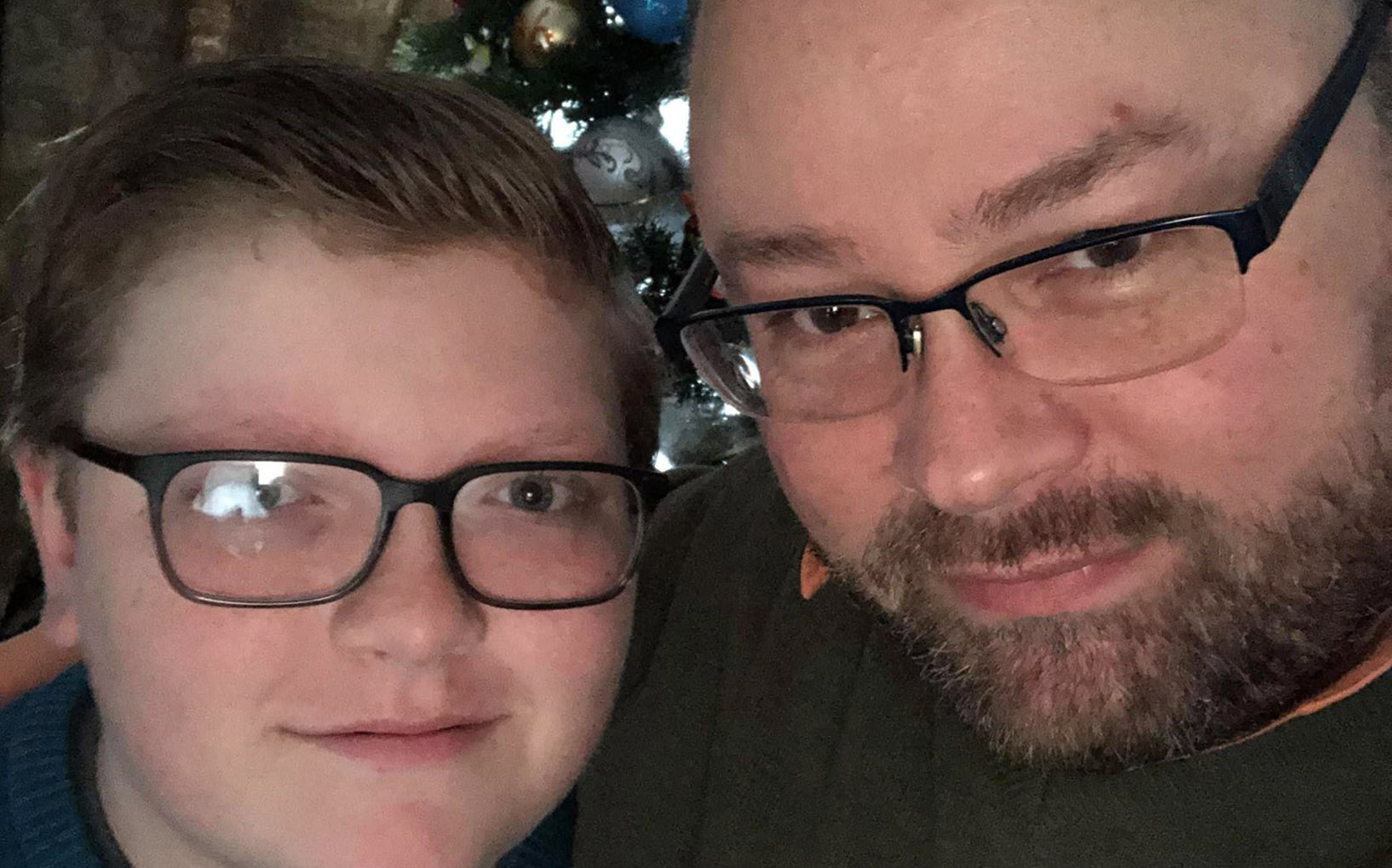Daddy Squared Around the World: Germany
Podcast: Play in new window | Download | Embed
Subscribe: Apple Podcasts | Google Podcasts | Spotify | Stitcher | TuneIn | RSS | More
Daddy Squared: The Gay Dads Podcast looks at gay rights and fatherhood options in Germany. We talked with German stage actor and blogger Kevin Silvergieter (AKA “Papapi”) to get a taste of what it’s like being a gay dad in Germany, and researched options for gay men who want to become dads.
Despite Berlin’s reputation as one of the most gay-friendly cities in the world, it’s surprising to know that Germany is not as tolerant for LGBT parenting as one might think. Not only is there a lack of visibility for gay dads in the media, gay men report discrimination in adoption and the general attitude towards them raising kids.
“Still there are a few parts where I’m like ‘um, we live in Germany and it’s 2021 and are you kidding me?!’,” our guest in this episode, famous blogger Kevin Silvergieter, tells us, “do I still have to deal with that as a gay man?”
Until 2017 gay marriage wasn’t even legal in Germany. There was something like ‘written partnership by law.’ “With us not being able to marry we were not able to adopt kids as couples.” Kevin explains. “We still have [discrimination] in quite a few areas of German law. For example, blood donation is not allowed for gay men because our behavior raises the risk of HIV, which is, of course, ridiculous. They did come up 5 years or so ago with a law that gay men can donate blood if they haven’t had sex for 12 months.”
With adoption, it’s really rare for gay men to be selected, according to some testimonials, because of a strong preference by the authorities and the birth parents to give kids to heterosexual families.
“I don’t want to call it discrimination but it’s kind of odd that we’re not good enough for adoption but the agencies will placed very troubled foster kids with us,” Kevin says in the interview.
Foster Care is definitely more common for gay men than adoption. “I know that there are a few gay couples who were closer by age more than my husband and I and they adopted 6 years ago,” Kevin says. “They both have been a better match for the authorities than we have, so one of the dads adopted and then three years ago when the law changed the other one could adopt them as well. Also, overall, there are not many kids available for adoption. The ratio is 10 heterosexual parents waiting for every one kid, and on top of that one gay couple. And the biological parents can decide with the authorities together where to put the kids and most of them prefer to place their kids with heterosexual couples.”
Kevin and his husband were reluctant to go with the Foster Care route because of fears for growing close to a child only to have them taken away. He was surprised to find out that there was a ‘permanent foster route,’ where he can get a court document that affirms that the kids will stay with him.
“In April 2014 I called Foster Care and asked for an interview to see if this option really doesn’t fit us or we just didn’t know enough,” Kevin tells us. “I just thought that if we don’t hear it first-hand we can’t really rule it out. So we started, and then in September 2015, after a long, long road with lots of paperwork and talks with psychologists (a process which was really frustrating at the time, but which I now appreciate for the extreme care involved), our son moved in.
Daddy Squared: The Gay Dads Podcast returns for season 4, Around the World, to capture gay dad options and rights in a post-pandemic world. In each episode, Alex and Yan, a married couple and fathers of five-year-old twins, talk with gay dads from a different country, discussing equal rights and options for gay men.
Foster Care in Germany
Foster Care is currently the main option for gay men. In recent research of types of parenting for gay men, it was found that 54% of families with gay dads were created through Foster Care.
The main difference between Foster Care and Adoption is that parents or guardians with custody must be involved in important decisions made by the foster family. Because of these dependencies on external actors, a foster family becomes somewhat of a public family whose private life is overseen in institutional contexts. Foster parents have to learn to deal with this to a certain extent.
More input on gays as foster parents.
Adoption in Germany
The issue of same-sex couples adopting children is full of conflict. Even today, many voices, especially in politics, are heard about not trusting gays to raise children. In 2013 Angela Merkel said that she was uncomfortable with the idea of adoptions. “I’m unsure about the best interests of the child,” she said. In July 2015, the Berlin CDU rejected a majority of marriage for same-sex couples. To this day, Germany has made it very difficult for homosexual couples to adopt a child.
Most of the domestic adoptions of gay fathers that we know are resulted from a previous foster relationship. In Germany, it is difficult for same-sex couples to start a family through adoption. That is why gay men increasingly choose the path of adoption abroad. The number of countries that are giving children to single men for adoption is currently very low.
Multiple Parenthood Germany
More and more gay fathers are trying to realize their desire to have children together with heterosexual or lesbian women in a multi-parent family. Several people come together here because they share their lives with children and want to take responsibility for them together. In addition to checking a possible fit, there are many uncertainties that need to be removed. This requires a differentiated exchange of ideas about upbringing, how to deal with possible conflicts as well as needs and claims in questions of closeness and contact with the child, as well as information on the legal situation.
The legal situation of this multiple parent constellation is difficult, as there can only be two parents legally in Germany. For the mostly three to four expectant parents, the question always arises of where legal parenting should be mapped. As long as there is no legal framework in Germany that can represent a multiple parent constellation on an equal footing, such a family constellation always harbors legal risks beyond the personal challenges. All agreements under private law are based on the trust and honesty of those involved.
Surrogacy in Germany
Surrogacy is illegal in Germany and gay men who decide to have a biological kid have to go abroad to go through surrogacy journey, mostly to America.
Our Guest: Kevin Silvergieter
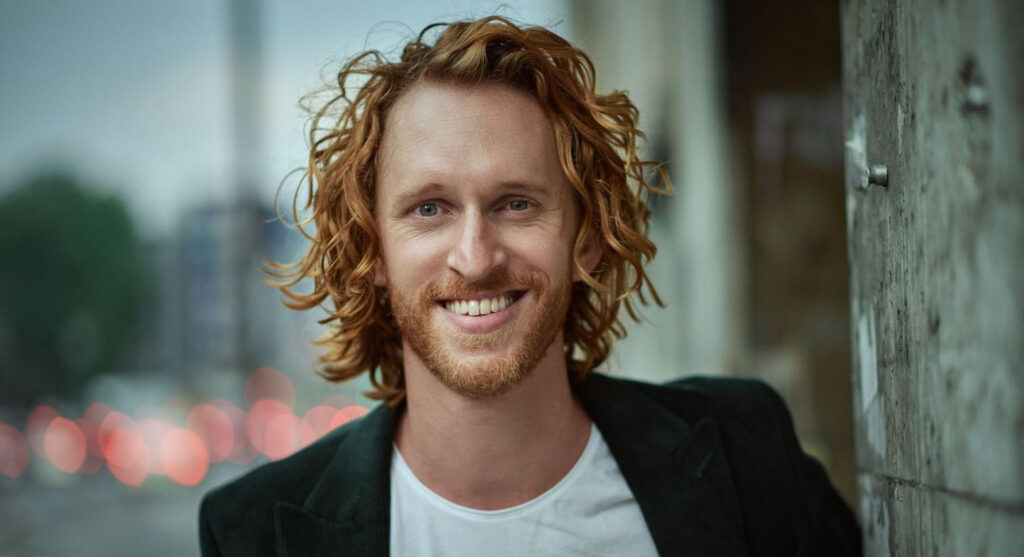
An actor and a blogger – in his blog, papapi.de, he gives insights into his family life with his husband and their two foster children. The blog received the 2017 “Special Award for Corporate Citizenship” of the parent Blogger Awards of the textile company Ernsting’s Family. With a definitive lack of visibility for gay dads in the media, Silvergieter is one of the most known gay dads in Germany at the moment.
Men Having Babies
The pandemic has created people focusing their journey on a more specific geographic region and looking to avoid travel and unnecessary trips, tryong to be efficiant in time and keep things as close as possible. For a lot people it slowed down their journey or even put everything on hold or evaluating when it is absolutely necessary to be in a place and and when things can be done in a different way in a way that hasn’t been done before. Most commonly we see it when people want to ship their samples and not go to the IVF clinic in person.
Organizations
- LSVD – the gay and lesbian association
- familyship.org
Gay Dads in Germany: Related Articles and News
- Zwei Väter für Susana und Luke (Der Tagesspiegel, August 26, 2019)
- On the Other Hand, Being Fathers is Great (German) (Der Tagesspiegel, 2016)
- Gay Couple Becomes First in Germany to Adopt Child (DW, 2017)
Episode Credits
Co-Hosts: Yan Dekel, Alex Maghen
Guests: Kevin Silvergeiter, Lisa Schuster
Opening Theme: Hercules & Love Affair, “Leonora” buy here
Articles Related to this episode:
‘American Song Contest’ on screens in 2022
Diggi-Loo Diggi-Ley – Herrey’s (Yan’s Eurovision Favorite)
Diva – Dana International (Yan’s Eurovision Favorite)
Yan’s Eurovision Corner on Instagram Reels
Listen to previous seasons of Daddy Squared
Join our Facebook group
Connect with us on Instagram

